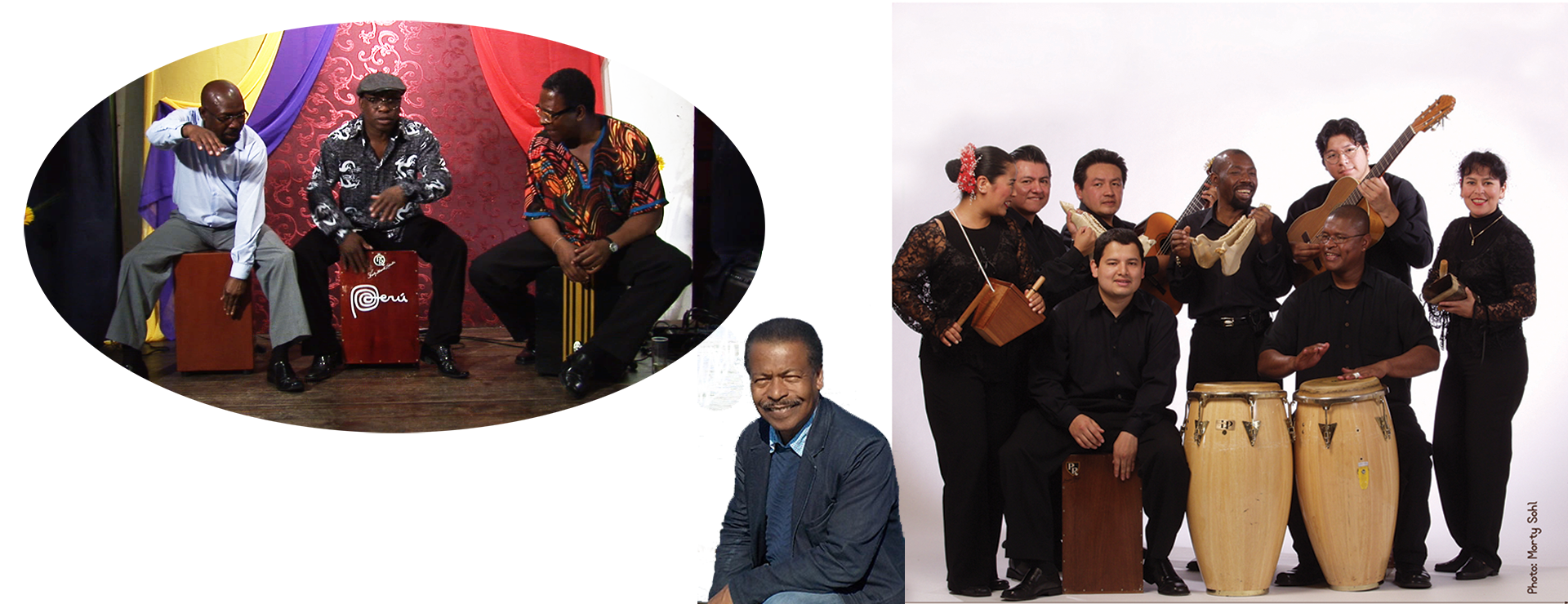LALO IZQUIERDO (percussionist, dancer, singer-songwriter and folklorist)
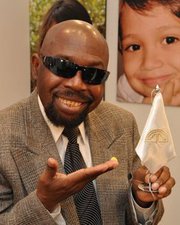 Lalo Izquierdo was born in Peru, in Malongo (now called Rimac), a city just across the river from Lima, Peru's capital. His family comes from the countryside south of Lima, where many towns are predominantly Afro-Peruvian and although poor, are proud of their heritage. Interested in his Afro-Peruvian roots since a child, he also learned its rhythms at a very young age by listening to the grown-ups as they partied, playing the cajón, dancing and singing.
Lalo Izquierdo was born in Peru, in Malongo (now called Rimac), a city just across the river from Lima, Peru's capital. His family comes from the countryside south of Lima, where many towns are predominantly Afro-Peruvian and although poor, are proud of their heritage. Interested in his Afro-Peruvian roots since a child, he also learned its rhythms at a very young age by listening to the grown-ups as they partied, playing the cajón, dancing and singing.
Izquierdo was one of the first members of the famous Afro-Peruvian performing group called Peru Negro, and was an early proponent of the revival of Afro-Peruvian performance arts. Recipient of several grants allowing him to study his roots and interview community elders, he became a folklorist and an ackowledged expert on the history and culture of African descendents in Peru. In addition, he was a skilled dancer and choreographer, and a singer-songwriter - and wrote one of the songs on this album.
His accomplishments include representing Peru in the Olympic Games held in Mexico City in 1972. He taught cajón and Afro-Peruvian dance throughout Latin America, in the United States, in Europe and in Africa; and is a master of the Afro-Peruvian zapateo fancy footwork, illustrated on this album. Izquierdo also appeared in several films and documentaries and spent many years working to establish a major center of Afro-Peruvian culture in his homeland. He died in 2022.
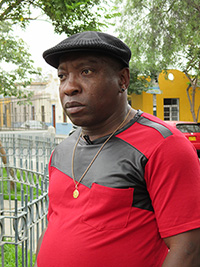
HUEVITO
percussionist, singer-songwriter
Huevito ("Freddy" Huevito Lobatón) was born and raised in Lima, Peru, but now lives in New Jersey and is part of Gabriel Alegría's Afro-Peruvian Jazz Sextet. Like Izquierdo and Cotito, he learned to play the cajón as a child listening to his elders, and has become a highly-respected percussionist as well as a champion of the Afro-Peruvian zapateo fancy footwork, illustrated in a track on this album. He also wrote the song for another track.
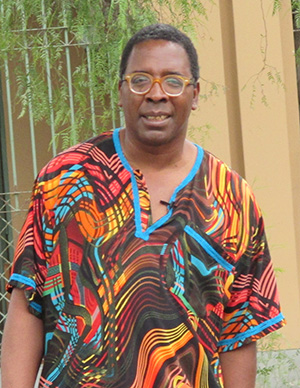
COTITO
percussionist, singer-songwriter
With a degree in journalism, Cotito (Juan Medrano Cotito) decided that he could not turn his back on his musical heritage and chose to become a musician and promoter of Afro-Peruvian music and culture. In the past, he was percussionist for the Grammay-award winning singer, Susana Baca, and also a leader in the band Novalima. He has his own album and in 2012, was recognized by the Peruvian government for his cultural contributions.
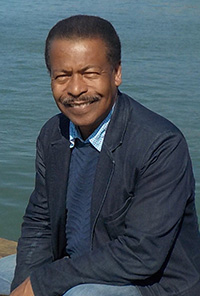
COCO LINARES
Guitarist
Coco Linares (Santiago "Coco" Linares), also of Lima, Peru, comes from a musical family. He remembers his father playing the trumpet when he was growing up. He has been honored by the Peruvian government for his playing, and has toured not only Latin America but also the U.S.. A composer as well as a guitarist, he also teaches extensively.
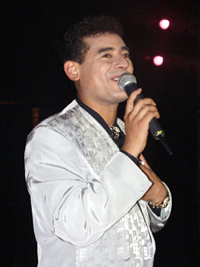
JORGE LUIS JASSO
singer-songwriter & dancer
Jorge Luis Jasso, of northern Peru's Piura district, started life as a dancer but turned to singing at the age of 18 and never looked back. A master of Peru's national music/dance, la Marinera, as well as of criollo singing in general, he has been honored with the title "ambassador of Peruvian culture" by the Peruvian consulate in San Francisco, while he was on tour there.
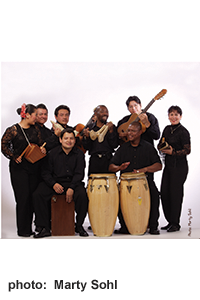
"DE ROMPE Y RAJA"
musical group
Composed primarily of Peruvian expatriats, the San Francisco Bay Area group "de Rompe y Raja" has toured the United States and made a special place for itself in the cultural life of the Bay Area. Specializing in Afro-Peruvian music and dance, it is led by dancer-percussionist Gabriela Shiroma and percussionist Pedro Rosales. They frequently invite stars from Peru such as Lalo Izquierdo to further their skill in Afro-Peruvian music and dance.
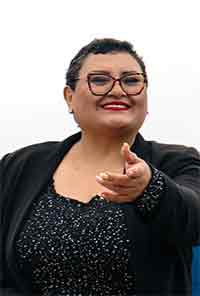
LETICIA CURAY MERINO, ROSA los SANTOS
singers
SOON

